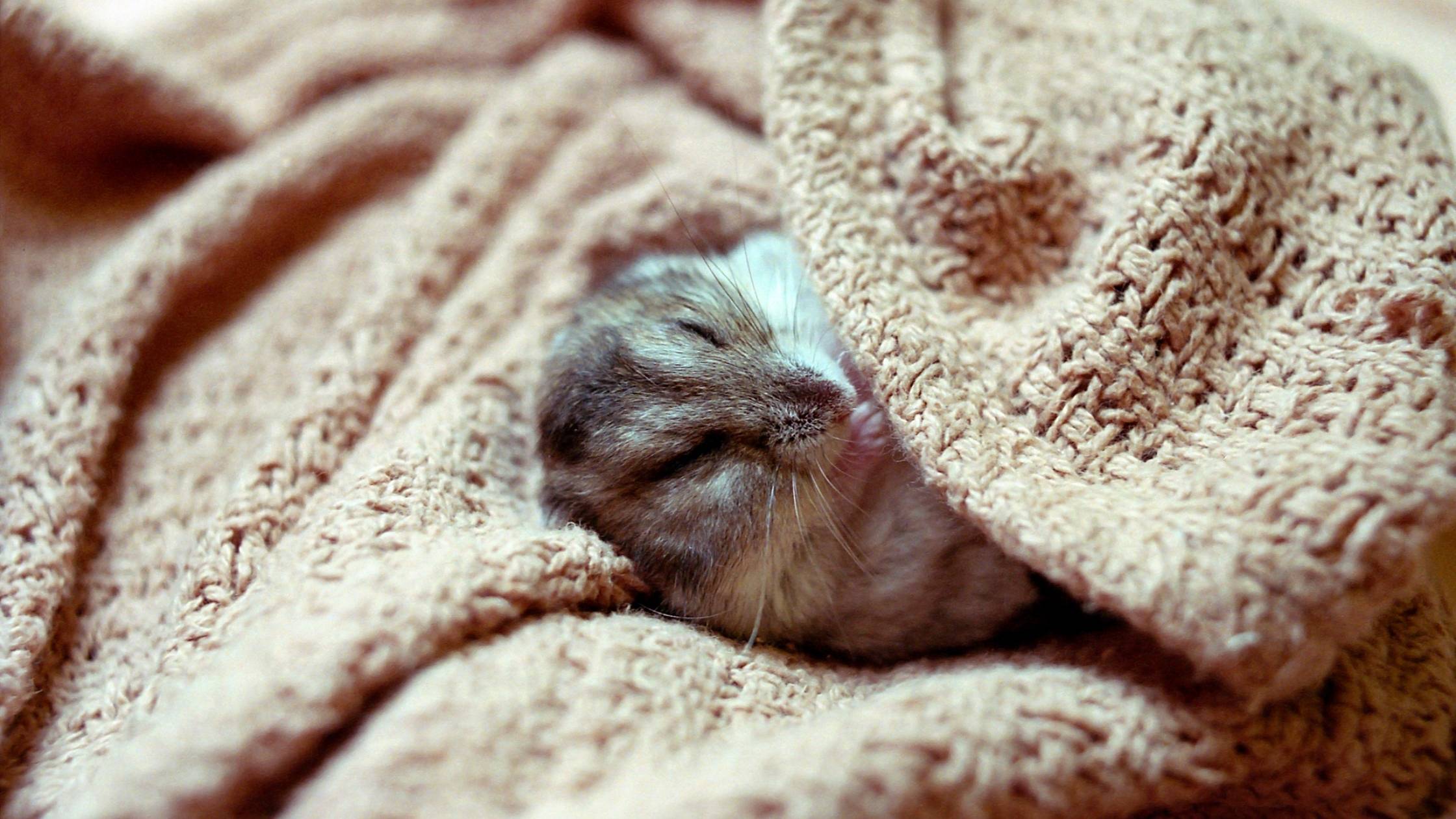Last Updated on 05/28/2021 by Veronica Jones
Do hamsters hibernate? Is it normal for a hamster to hibernate? What months do hamsters hibernate? These are just some of the questions that you may find yourself asking if you’ve chosen to get a hamster as a pet. The good news is we’re about to cover everything that you need to know about hamsters and hibernation.
Do hamsters hibernate?
Yes, hamsters do hibernate. However, your pet hamster’s hibernation could be a clear indication that there’s a problem with animal husbandry in your home. There are over 20 species of hamsters known up to this day but not all of them are considered true hibernators. More importantly, the environment of your pet hamster should not force them to hibernate.
It’s safe to say that hibernation is already a part of a hamster’s nature but it is absolutely preventable for pet hamsters. So, before getting a hamster, make sure you’re familiar with the following details that we’ll touch base on. A hamster’s life span isn’t the longest and of course, you want to spend every minute available with them in the right way.
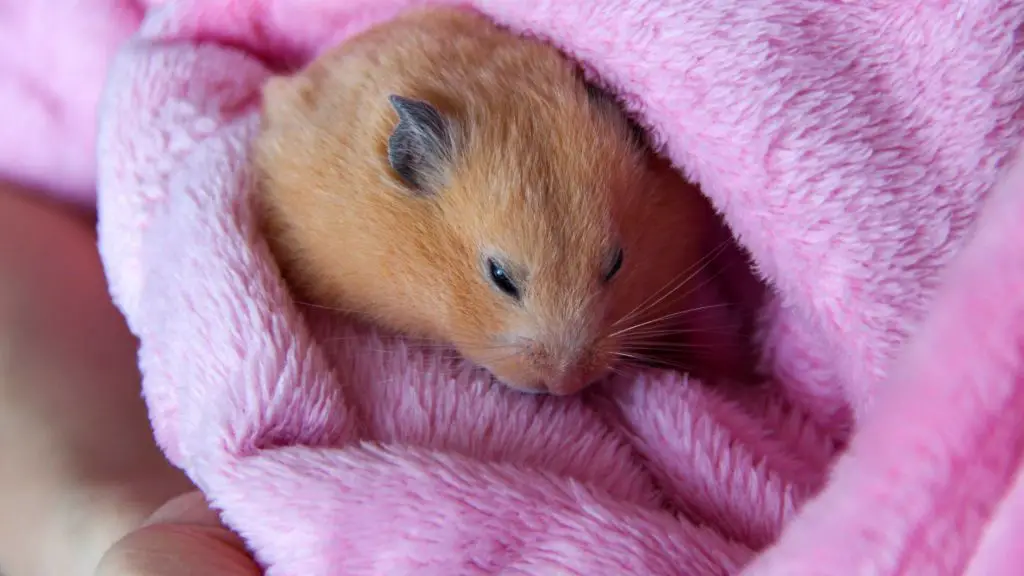
Why do hamsters hibernate?
Hibernation is a survival strategy that many animals use, including hamsters. They hibernate to keep themselves alive during cold weather and to save energy for when resources are not readily available to them. During hibernation, animals fall into a deep slumber. Their heart rate and temperature drop and their breathing becomes slower, too.
Basically, there are two different kinds of hibernation, the obligatory and the permissive hibernation. Obligatory hibernation pertains to the kind of hibernation most people are aware of in which animals eat a lot during summer months and then hibernate during the winter. Some examples of animals that do this hibernation are bears and squirrels.
On the other hand, permissive hibernation is what most species of hamsters do. This kind of hibernation doesn’t depend on the time of the year. It mainly depends on the condition of an animal’s environment. If your hamster feels like its environment can’t support its needs, it will tend to conserve energy and go into torpor. This state is a deep sleep similar to the obligatory hibernation but it doesn’t last that long.
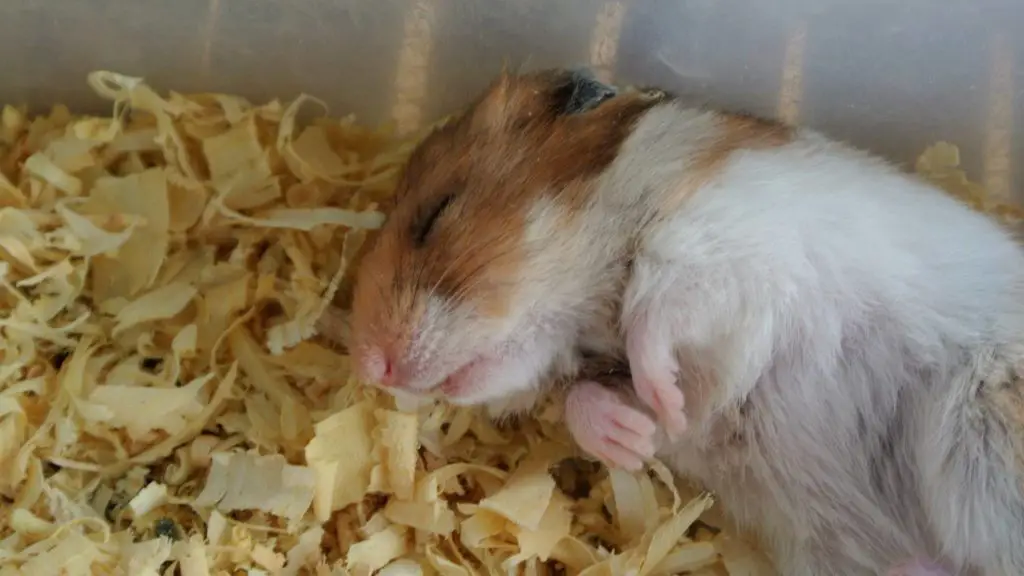
Most of the time, hamsters will stay in torpor until their environment gets better. However, the longer your hamster stays in hibernation, the more dangerous it gets. It’s because your hamster can potentially develop dehydration or hypothermia. That’s the downside of permissive hibernation. Hamsters won’t be able to prepare like squirrels and bears before falling asleep for an indefinite span of time.
Typically, not all species of hamsters undergo the same behaviors when it comes to hibernation. For instance, European hamsters are more inclined with obligatory hibernation than with permissive hibernation. Syrian hamsters, on the other hand, have more tendency to go into torpor state while dwarf hamsters have a very small chance of hibernating at all.
Recommended Article: The 5 Best Hamster Water Bottles in 2021
Regardless of what your pet hamster’s species is, it’s a tough call once they have gone to hibernation. So, here are the most important things that you need to remember so you can properly take care of your sleeping hamster.
When do hamsters hibernate?
You’ve now learned that most hamsters go into torpor if their environment gets too cold or if they feel unsafe in their current home. So, when exactly do hamsters hibernate?
The ideal temperature for your pet hamster’s environment should only be between 65 to 75 degrees Fahrenheit. Usually, anything lower than 65 Fahrenheit prolonging to 24 hours can cause your hamster to hibernate. There are also hamsters that can endure the cold for a month or two before finally deciding to leave it all behind and fall into hibernation.
Moreover, the available light, food and water in your hamster’s cage can also trigger hibernation. If your hamster experiences darkness most times of the day, they are more likely to get into torpor. Insufficiency in food and water can also increase the chance of your hamster to go into hibernation.
How long do hamsters hibernate for?
Usually, hamsters undergo permissive hibernation or torpor state for 2 to 3 days. Again, this span of time isn’t as long as the obligatory hibernation. However, if your hamster continues not to receive warmth and light, their hibernation can extend even longer. This eventually leads to danger because the longer your hamster hibernates, the more weight it loses and the more its nutrition gets affected negatively.
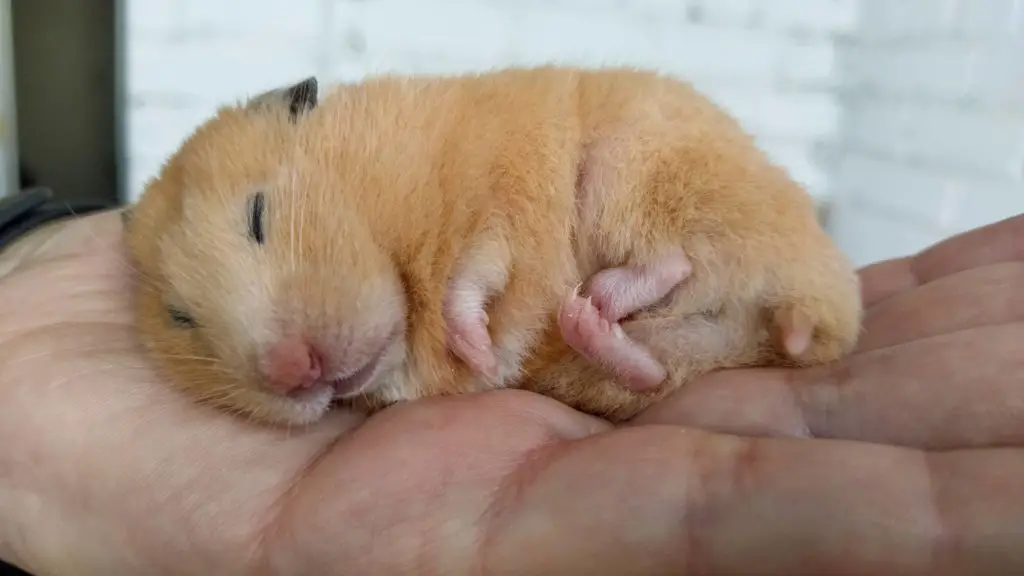
Will my hamster hibernate?
You may not control the fact the hamsters do hibernate but you can actually read between the lines if your hamster might go into a state of torpor. There is no better way than prevention but during the times when factors are hard to control anymore such as the weather and temperature, you might want to be extra observant of your hamster’s behavior.
Recommended Article: Top 10 Best Hamster Cages 2021
You can watch out for these early signs because they can be indications already that your pet hamster can knock out anytime.
- Inactivity – before hibernating, your hamster might already exhibit lethargy to the point where he seems to be out of energy.
- Longer naps – you might also observe that your hamster is sleeping longer than usual and you have to keep track if this is becoming more consistent.
- Shivering – a slightly, shaking Hammie might look cute in videos but we all know that shivering is also an effect of cold temperature. You might also feel that your hamster’s feet, nose and ears are cold when touched.
- Lack of appetite – this might seem very ironic for an animal planning to go on a hibernation but consider it a sign if your hamster begins to lose interest in its food and drink.
At the end of the day, it’s still best to contact your local veterinarian in case your hamster is showing these symptoms.
How do I know if my hamster is hibernating?
This has been a very common question by most owners. Well, you just can’t blame them if their hamster has been laying in its cage for days. While a play-dead trick is fun to watch, hibernation of hamsters can definitely cause panic among their owners.
If you missed to notice the early signs mentioned above, here’s what you can expect to witness during your hamster’s hibernation.
- Sporadic respiration – one visible indication that your hamster is already hibernating is sporadic or no respiration at all. The breathing process of a hibernating hamster is different from that of a normally sleeping hamster.
- You can barely feel heartbeats – at some point, you might not feel any heartbeat at all but that’s only because they are saving their energy during torpor.
- Cold to touch – your hamster might feel cold if you touch its body parts such as the ears, nose, feet and tail. It might also exhibit shivering episodes. You might ask, “what should I do if my hamster is hibernating?” Don’t worry, we’ll tackle that question later on.
- Unresponsive body – your hamster might probably be hibernating already if you try to pick it up and it remains stiff or limp. Basically, it looks like it’s in a coma or even more confusing: dead.
On a related note, how do you know if your hamster is dead or just hibernating? We’re about to find out right about now.
Is my hamster dead or hibernating?
Now that you already know the signs to watch out for in order to determine if your hamster is hibernating or just sleeping, let’s get into further details. You don’t want to bury your hamster thinking it’s dead when it’s not, just like what one woman almost did in Aylesbury, England.
If you notice that your hamster is already hibernating than the usual time frame of 2 to 3 days, try to look for other signs of life because you might be just waiting for a miracle to happen.
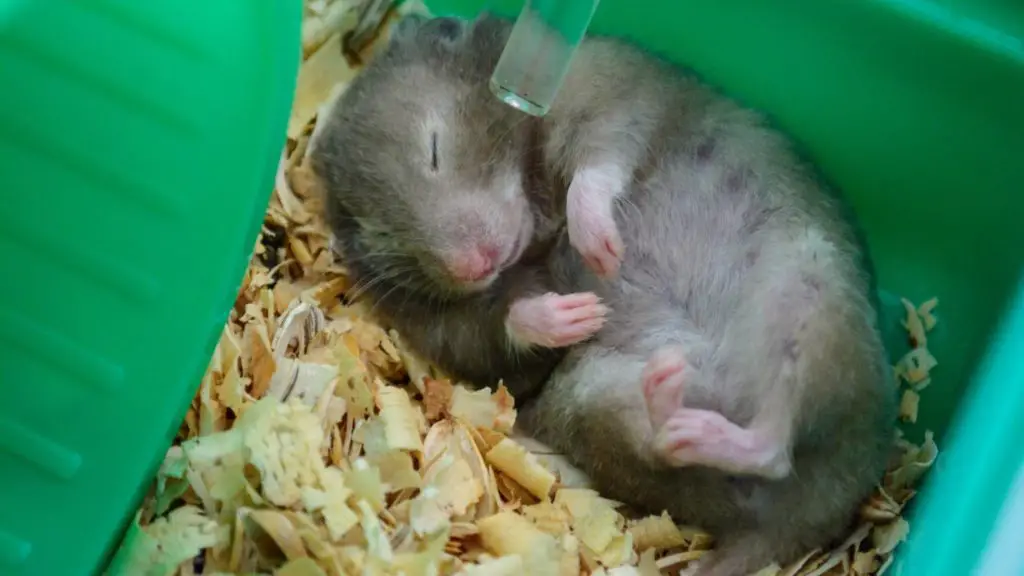
- Check your room temperature – the number one factor why your hamster can go into hibernation is the temperature in its environment. Earlier in this article, you’ve learned that hamsters can hibernate in a room temperature lower than 65 degrees Fahrenheit. If you already tried to adjust your room temperature to the ideal 65 degrees Fahrenheit to 75 degrees Fahrenheit, or even a little over to keep your hamster’s cage warm but not too hot, yet your hamster isn’t waking up for too long, there’s a chance that your hamster has passed away already.
- Check the light in your room – another factor to consider is the amount of light available in your hamster’s cage. As much as possible, you want to make sure that your hamster doesn’t stay in the darkness most times of the day. Even when it’s hibernating, ensure that light is readily available to your hamster because it helps in body stimulation which can eventually wake your hamster up.
- Check your hamster’s breathing – you already know that your hamster’s respiration during hibernation can be sporadic. To be specific, its breathing is so slow that it only lets out one tiny breath every two minutes. During hibernation, watch closely for your hamster’s breathing. You may not notice it but there can still be a sign of life to your hamster so pay critical attention before thinking if it already passed away.
- Check your hamster’s heart beat – if you’re unsure about your hamster’s breathing, you can check its heart beat instead. It’s equally difficult to notice just like respiration but try placing your forefinger and thumb on the side of your hamster’s chest above the elbows. Gently apply pressure the same way you would do if you’re holding your hamster to stop it from running without hurting it. You should start to feel a pulse after a minute or two.
Again, the best way to know if your hamster is just hibernating or already dead is by consulting your local veterinarian. They have the proper equipment that they can use to declare your hamster dead or to even stimulate its body from hibernation.
Recommended Article: Top 5 Best Hamster Foods 2021
How to take care of hamsters during hibernation
“How do I take care of my hamster during hibernation?”, you may ask.
Hibernation is different from sleeping and while you should not disturb your hamster when it’s sleeping normally, it’s not just the same case with hibernation. Thus, your hamster may require a different level of husbandry.
- Hamsters normally hibernate in an average of 2 to 3 days but since torpor isn’t healthy for your pet, you should already try to get them out of the state. As mentioned above, you should try to warm your hamster’s cage and provide sufficient light around it for a minimum of 12 hours.
- You can also cover your hamster with a warm blanket if you can’t get the cage warm enough.
- More importantly, rubbing and massaging your hamster gently can get their blood to flow again properly.
- Once you’re able to wake your hamster up from hibernation, make sure that enough food and water are readily available.
Is hibernation bad for hamsters?
Hibernation is normal for hamsters but it’s not good for your furry pet. Hibernation among hamsters is an indication that their environment is becoming unhealthy and unstable for them. If the temperature is too cold for your hamster or if you’re not feeding it enough daily, it will tend to go into hibernation as a survival mechanism.
It’s very significant to take note of the things that were mentioned above but it’s always best to get in touch with your local veterinarian for prolonged than usual hibernation and to determine the specific needs of your hamster.
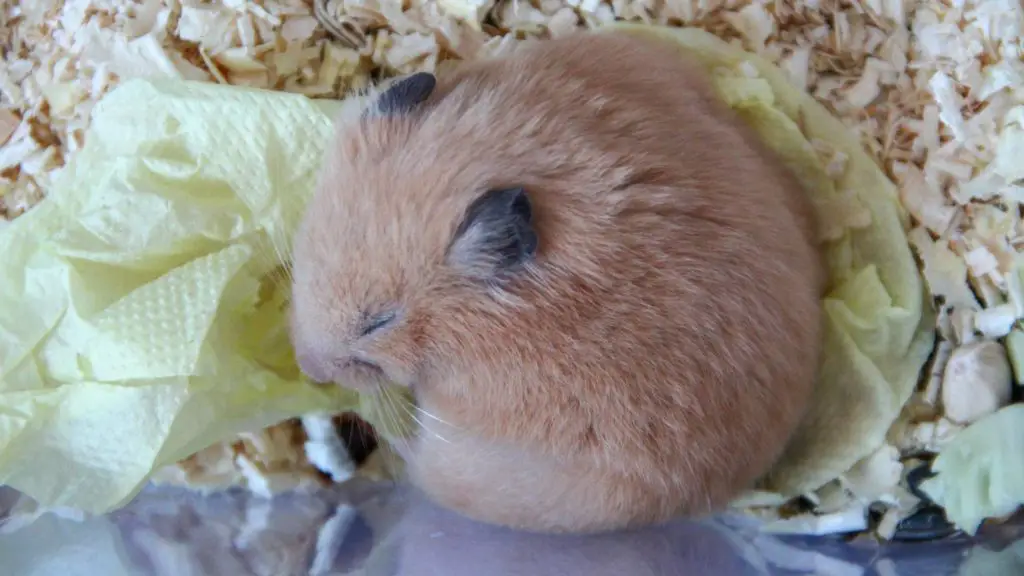
Final thoughts
Do hamsters hibernate? Yes, but remember that your pet hamster should never have to hibernate if it’s receiving its basic needs. To avoid hibernation, make sure that your hamster is kept in a well-ventilated area inside your home that isn’t too cold, especially during the winter season. Give your hamster enough food and water as well. Finally, nothing beats genuine care that’s why you should treat your hamster as your friend and nothing less than that.
References:
- National Geographic Kids, ‘Hamsters: From the Wild to Your Bedroom’, https://kids.nationalgeographic.com/nature/article/wild-hamsters, Accessed – 18 May 2021
- BBC News, ‘’Dead’ hamster found alive in Aylesbury wheelie bin’, https://www.bbc.com/news/uk-england-beds-bucks-herts-42992888, Accessed – 18 May 2021

